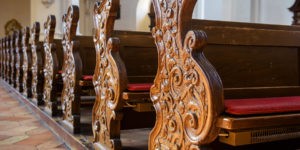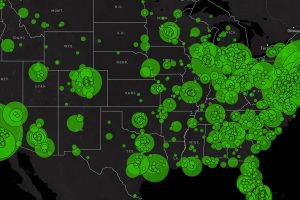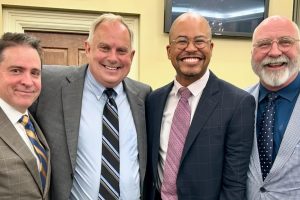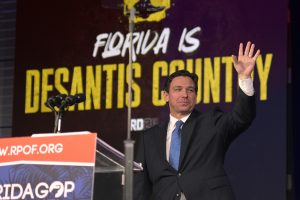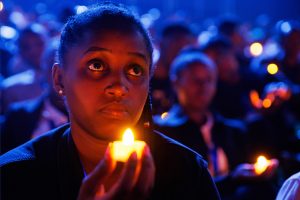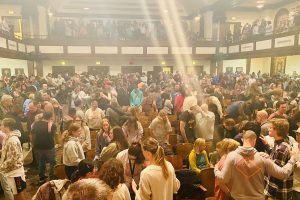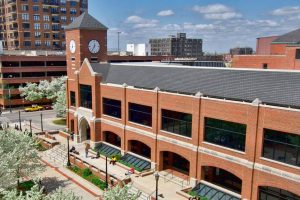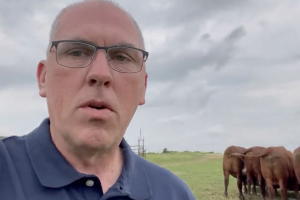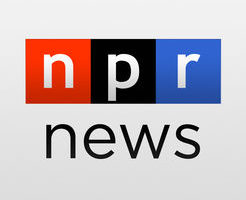In the fall of 2009, I finally gave in and signed my life over to Facebook. I figured it would be a great way to reconnect with friends and family.
Over time, I began to enjoy sharing my thoughts on theology, politics and sports. I was a conservative evangelical, Calvinist Republican in those days. And so were most of my friends. It was fun to share pithy, humorous statuses about how totally depraved everyone is, but how God chose to save a few of us, mostly Republicans, for his glory while burning the rest forever for his glory.
As I shared in my recent article about my introduction toward healing through self-awareness that led me out of that world, I had a lot of suppressed trauma that was fueling my theology and consequently my use of social media that I was totally unaware of. But as my doubts and questions began to pile up, there came a point where I wanted to share some of them.
“When I shared that article on Facebook, my entire experience of social media changed.”
In 2018, I wrote a relatively tame blog article where I wondered why I had listened to about 10,000 sermons in my life from mostly white, conservative, fundamentalist, Reformed, evangelical men, while never being given the opportunity to listen to women share much of anything. And when I shared that article on Facebook, my entire experience of social media changed.
Suddenly, I went from being the hilarious, theologically deep, politically informed friend to being on the witness stand having to defend myself, amidst hundreds of comments, against the charges of denying inerrancy, ignoring the clear teaching of the Bible and falling down a slippery slope. Then once I started questioning young earth creationism and the global flood, I was branded on my own Facebook wall as a false teacher and a wolf.
As we’ve spent most of 2020 dealing with COVID-19, socially distancing from one another, and experiencing a presidential election featuring Donald Trump, our stress on social media has intensified to unprecedented levels. Conservatives are threatening to leave Facebook for Parler due to Facebook’s flagging of their conspiracy theories. And as we approach the upcoming holidays after spending this year arguing with family on social media about these conspiracy theories, we’re facing even more strife over whether or not to get together.
In her book Alone Together, psychologist Sheri Turkle argues that computer technology has invaded our relationships, rewired our understanding of friendship and authenticity, and left us feeling alone. In a 2012 article for The Atlantic, Stephen Marche says that the loneliness and depression that Facebook fuels has revealed that “a connection is not the same thing as a bond, and that instant and total connection is no salvation, no ticket to a happier, better world or a more liberated version of humanity.”
“We need to look at the timeline of our story to grow in our awareness of who we are as relational beings.”
While I agree with much of their observations, I believe social media has a power worth saving toward “a more liberated version of humanity.” But to discover the social crossroads we find ourselves at, we need to look at the timeline of our story to grow in our awareness of who we are as relational beings.
We are transcending wholeness
Our story began around 13.8 billion years ago when the universe was condensed into the wholeness of a dimensionless point of energy called the singularity. After the Big Bang, particles began to draw toward one another in a circular dance and bond together. As they bonded, their convergence transcended to create atoms. Then as atoms began to draw together in their circle dance, they bonded and transcended to create molecules.
 As stars began to form, they developed within their cores the necessary elements to create life. Yet in order for those elements to be released into the universe, the stars had to die. It was in their dying to self that the core of who they were spread the elements of life across the galaxies.
As stars began to form, they developed within their cores the necessary elements to create life. Yet in order for those elements to be released into the universe, the stars had to die. It was in their dying to self that the core of who they were spread the elements of life across the galaxies.
From the formation of quantum physics to the unimaginably vast worlds of galaxies, stars, solar systems and planets, our story is an unfolding of wholeness transcending toward more complex wholeness. When we look inside our bodies, we can quite literally see this 13.8 billion-year-old story of coming together to transcend as one toward greater wholeness. The universe and our bodies are essentially a wholeness of energy in relationship.
We are evolving complexity
As our story began to be written on earth, we evolved from reptiles to mammals and into Homo sapiens, transcending toward greater complexity while bearing the marks and behaviors of our past. Our minds reveal this complexity through our anxiety-fueled reptilian brain that keeps us alive by sensing threats, our hunger-fueled mammal brain that drives desire and pleasure, and our primate brain that builds our social, cognitive, linguistic and creative connections.
Every individual contains within the mind and body a complex network of relationships. When individuals come together as families, co-workers, churches or social groups, these complex networks of relationships interact with one another to create even more complex relationships. As a result, new consciousness emerges.
We are emerging consciousness
As humans began to emerge, we initially developed a consciousness that was mythic, tribal and ritualistic. Our fascination with the fertility cycles of nature created a mythic vision of reality as sacred. Yet our experience of community was generally limited to our tribes. In order to restore any disorder in nature, we developed rituals and sacrifices that were meant to bring reconciliation and healing. Within this consciousness, the seeds of religion and politics began to grow.
As our tribes began to interact, we gradually became aware of the ideas of neighboring tribes. This interaction led individuals to question their own tribe’s ideas, which led to a consciousness that was more individualistic and rational. These individualistic, rational theologies and politics set within the hierarchical structures of power were the world that the church and eventually the American culture grew up in.
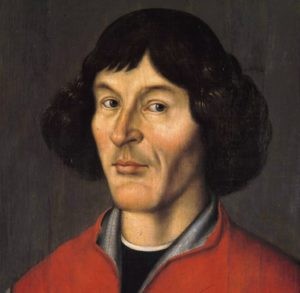 When Copernicus confirmed that the earth revolved around the sun, the church rejected his science because it de-centered the earth, humanity and, by extension, God. Fueled by their wounds of oppression under the church hierarchy and their loss of control from the de-centering of humanity in the cosmos, the Protestant Reformers developed a theology that was divorced from the unfolding understanding of the cosmos. As science moved away from the fixed, mechanistic world of Newton toward the evolutionary relational world of modern science, Christian theology became even more divorced from the reality of unfolding wholeness.
When Copernicus confirmed that the earth revolved around the sun, the church rejected his science because it de-centered the earth, humanity and, by extension, God. Fueled by their wounds of oppression under the church hierarchy and their loss of control from the de-centering of humanity in the cosmos, the Protestant Reformers developed a theology that was divorced from the unfolding understanding of the cosmos. As science moved away from the fixed, mechanistic world of Newton toward the evolutionary relational world of modern science, Christian theology became even more divorced from the reality of unfolding wholeness.
The more Christianity became separated from our growing awareness of universal wholeness, the more it shifted its theology of salvation to focus on the next world rather than this one. The 20th century devolved into the most violent, deadly century in world history. So culturally, the desires for salvation and immortality began to shift away from religion to technology.
What’s on your mind, Rick?
Every time I log onto Facebook, I’m faced with the question in the “Create Post” box, “What’s on your mind, Rick?” Most of us will click on the box and start typing away whatever we’re thinking about at the moment. Yet we have no idea how infinitely complex the subconscious web of relationships is in our minds and bodies that has been unfolding toward that “Create Post” moment for 13.8 billion years.
In his book The Future of Man, Pierre Teilhard de Chardin said, “Just as Earth once covered itself with a film of interdependent living organisms … so humankind’s combined achievements are forming a global network of networked mind, a new intersubjectivity.”
While social media has been revealing a splintering apart of American society along the lines of religion and politics, it also has been evolving a more global consciousness by connecting individuals across the religious and political divides unlike ever before in history.
“What we are really seeking is a bond that leads to salvation as a ‘more liberated version of humanity.’”
In her book Re-Enchanting the Earth, Ilia Delio explores how social media has led the individual to transcend into a networked consciousness that is fundamentally reshaping human relationships. Whether we are aware of it or not, the individual is transcending to become more tribal, while the religious and political tribes of the earth are becoming more global. Technology such as social media, Delio says, “arose as nature’s cry for connectedness and wholeness, an effort to transcend our crippled individualism.” As Stephen Marche said in The Atlantic, what we are really seeking is a bond that leads to salvation as a “more liberated version of humanity.”
We are becoming liberated humanity
In their book How to Think Theologically, Howard Stone and James Duke discuss how Christians have an “embedded theology” that is handed to us from within our communities. It is the unquestioned, natural theology that we simply assume is reality. They then discuss “deliberative theology” as the process of becoming aware of, reflecting on and reconsidering our constructs of reality that we had long taken for granted.
This journey of self-awareness is the beginning of “a more liberated version of humanity.” We must do the difficult work of facing our wounds, of naming and grieving them so deeply until we are moved with compassionate love for ourselves.
Delio says we need to reimagine Christianity in light of the cosmos to discover both the depths and complexities of who we are within and the opportunities for convergence and transcendence that lay before us to expand without.
Over the past few years in particular, there has been a growing fear amongst conservative evangelical white men about what they perceive to be the dangers of liberation theologies. Twitter is full of these men attacking even other conservative Black men for bringing this supposedly dangerous theology into the church.
In Lift Every Voice, liberation theologians Susan Thistlethwaite and Mary Engel frame liberation theologies within the eschatological cosmic story of God bringing the cosmos together into greater wholeness through restorative justice and love. Liberation theologies begin from the perspective of oppressed communities and address the systemic structures that are causing their suffering. According to C.S. Song, liberation theologies see that reality is “a world of multiplicities stamped with the One,” and that “we are in nature and nature is in us, and together we and nature are in God.”
The reason conservative evangelical white men are against liberation theologies is that they have promoted a gospel that is fundamentally against the reality of universal, unfolding wholeness. They promote a gospel that says we are fundamentally separate individuals, separate from God, making separate decisions, with separate eternal destinies. They embrace a theology that uses the individualistic, rational interpretation of mythic, ritualistic tribalism within an ancient hierarchical power structure of the cosmos. And they are its power brokers on the earth.
So when I post a status about liberating communities they have oppressed, they deny the existence of systemic evil, label me as dangerous, and threaten everyone with the judgment of separation from neighbor and God.
Part of my growing self-awareness has led me to realize I also have been oppressed by these men. I bear the wounds of their words in my bones. But I also bear the unfolding story of the cosmos as transcending wholeness in my bones.
“To post a Facebook status or share a tweet is ultimately a cry toward wholeness.”
To post a Facebook status or share a tweet is ultimately a cry toward wholeness. To have those who have benefited from systemic power tell you that you are wrong and a threat is trauma.
We have only begun to explore through astrophysics, quantum physics and neuroscience the depths of our story, the complexities of our minds and bodies, and the opportunity for liberation or separation that social media gives us. As Delio says, “Technology is extending the outreach of the human person into global domains.”
Perhaps by discovering our story of unfolding wholeness by exploring the cosmos within ourselves, we’ll be able to use social media to name and bring justice to the traumas of separation as we transcend toward the bond of “a more liberated version of humanity.”
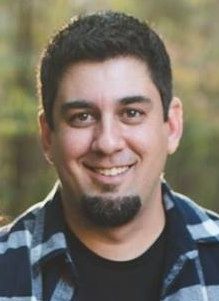 Rick Pidcock is a stay-at-home father of five kids. He and his wife, Ruth Ellen, have started Provoke Wonder, a collaboration of artists that exists to foster child-like worship through story and song. Provoke Wonder’s first album, Consider the Stars, was released in March 2020. Their first children’s book, What If, will be released in 2020. Rick is pursuing a master of arts degree in worship from Northern Seminary.
Rick Pidcock is a stay-at-home father of five kids. He and his wife, Ruth Ellen, have started Provoke Wonder, a collaboration of artists that exists to foster child-like worship through story and song. Provoke Wonder’s first album, Consider the Stars, was released in March 2020. Their first children’s book, What If, will be released in 2020. Rick is pursuing a master of arts degree in worship from Northern Seminary.
This article was made possible by gifts to the Mark Wingfield Fund for Interpretive Journalism.



